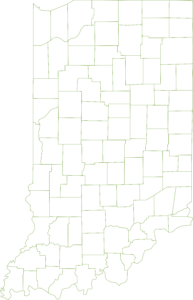Get to Know Esther Lewis, H.E. Founder
How did the COVID-19 pandemic uniquely affect your community?
The big concern that I have as it relates to COVID-19 is that in the city of Gary, the population consists of a lot of grandparents and elderly people who are raising their grandchildren. We have a large elderly and large youth population, so many young people have lost their caregivers during Covid. According to the surgeon general more than 200k young people lost parents or guardians to covid. During one of our most recent HE barbershop talks, we had younger and older men talk about how losing grandparents and the matriarchs in their family contributed to their decision to begin using drugs. I’m concerned about how in the long term it will affect the decision making of young men we are serving since many lost caregivers. I’m concerned about the type of men that they will become under these circumstances.
What need did you see in your community that led to you applying for a grant with Together We Will?
I felt that it was important to provide cross generational education for black males on health and health disparities. I thought it was important to do it in a way that black men would receive the information. It’s also very difficult to do innovative programming and find financing and funding for new programming. I knew it was important to have cross generational conversations about health and the decisions black men are making as it related to their health. We needed to make sure that we had funding that would support innovative strategies to do just that.
What do you hope to see to be the next step for your project post TWW?
I really want to see 1. More people listen to this cross generational conversation about public health as it relates to black men and boys. I’d like to see a continued increase in knowledge and change in behavior based on the increase in knowledge and education. I would like to see more funding to support males of color in their journey to access mental health support and working to become more health conscious.
What impact have you seen on your community since beginning your project?
I was just talking about how impactful these conversations have been, just getting young men in the room with other young men, middle aged men and older men. TO talk about trauma, coping and mental health. What makes you stressed? We have more men that are engaged in the conversation, more people who are talking about coming to the conversations. I’ve got young people who have said “I’m glad I came and I know god has more for me. I’m always running from what god has for me but I’m glad.” I had someone tell me that you go through a lot of stuff and feel like no one cares but you’re in a room with people that you feel really care about you.
The messages that I get from the mentors saying how thankful they are to really be able to connect with the young people to hear what they want and indeed. It motivates them and makes them feel good about themselves for helping the young people. We had a reporter come to the last barbershop talk who plans to write an article for WFYI
What impact have you seen on your community since beginning your project?
The biggest goal for this project is for HE health weekend to have the premiere of all of the barbershop talks together. So putting it together and having it viewed a million times so people know what types of things plague young men. Then hopefully they’ll become educated on the prevention science on changes in behavior. I want to continue to have the barbershop talks but I want the CHWs and barbers to take them on. We have a member organization and we want to use CHW training to be part of their curriculum so they’re coming out of school with a barber license and certified CHW. So they understand how with their role as a barber they’re also the confidante who can help guide them and encourage them to make better health decisions.
I focused on black males originally to align with the purpose of the Indiana Black Barbershop Health Initiative but I’d like to keep this open to support all males of color and support different communities.
In the News
Did you know that black men suffer far worse health disparities than other groups in Northwest Indiana?
Watch to learn how the H.E. Barbershop Health Series supports minority healthcare in Northwest Indiana.
